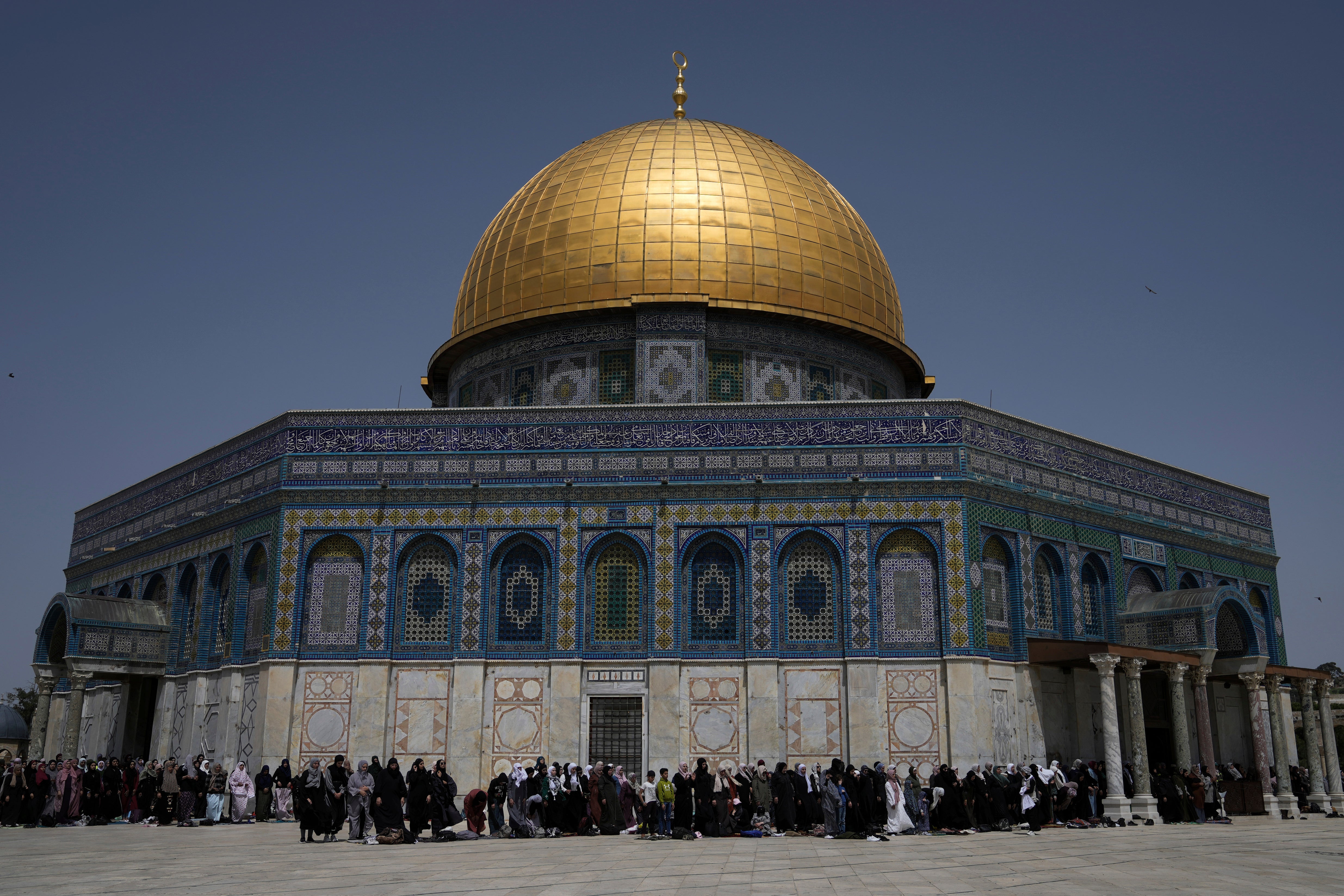Israeli police absolved in killing of Palestinian at Al-Aqsa
Israeli authorities say an internal investigation into the killing of a 26-year-old Palestinian citizen of Israel earlier this month at Jerusalem’s most sensitive holy site found no wrongdoing by the police

Israeli authorities said Thursday that an internal investigation into the killing of a 26-year-old Palestinian citizen of Israel earlier this month at Jerusalem's most sensitive holy site found no wrongdoing by police.
With several details of the incident in question, the case has sparked outrage from Arab lawmakers and rights groups.
The Israeli state attorney's office officially closed the case on Thursday, saying that police acted “lawfully in self-defense” when they shot and killed Mohammed Alasibi, a Palestinian citizen of Israel from a Bedouin village in the country's south. He was fatally shot at the entrance to the Al-Aqsa mosque compound in the Old City of Jerusalem on April 1.
Police alleged that Alasibi pounced on an officer and tried to grab his gun, managing to fire two shots into the air before the officer regained control of his weapon and killed him.
Palestinian witnesses offered a conflicting account, saying Alasibi argued with an officer over his alleged harassment of a female worshipper on her way to the mosque — the third holiest shrine in Islam. The compound, revered by Jews as the Temple Mount, is also the most sacred site in Judaism.
After some quarreling, Palestinians said they heard a burst of gunfire — over a dozen shots — all apparently fired at Alasibi at close range.
Alasibi's family denied he would ever try to attack a policeman, describing him as ambitious and level-headed. They said he had just returned from studying medicine in Romania and was working to get certified as a doctor in Israel.
Israel's state attorney on Thursday said it had “clear, direct and solid evidence that no offense was committed" by the police, without elaborating or offering proof. Although Jerusalem’s Old City alleys bristle with security cameras, police maintained that there was no security footage of the alleged attack.
“An investigation revealed that the incident took place in a 'blind spot' (of the Old City) that is not covered by any security cameras," the statement said. There also was no body camera footage.
Ahmad Tibi, a prominent Arab lawmaker in the Israeli parliament, decried the investigation as a whitewash and demanded an independent probe.
“This is a department that we do not trust. Its result was known in advance,” Tibi told The Associated Press. “The police story is not only unconvincing, but their refusal to publish any video of the incident confirms our suspicions ... that Mohammed was killed in cold blood.”
Israeli authorities said their investigation involved speaking with the involved officers, consulting witnesses and performing forensic examinations.
The Department of Investigations of Police Misconduct, which handles brutality complaints, has faced criticism in the past for failing to thoroughly investigate allegations.
An Israeli state comptroller's report from 2017 said the department closed the majority of cases under consideration at a “preliminary stage” of investigation, in part over concerns that officers may hesitate to use force when necessary.
In 2015, 66% of the cases brought to the department were closed without questioning the officers involved, the report said. Fewer than 200 cases were referred for disciplinary action out of the 6,320 cases opened that year.
Bookmark popover
Removed from bookmarks